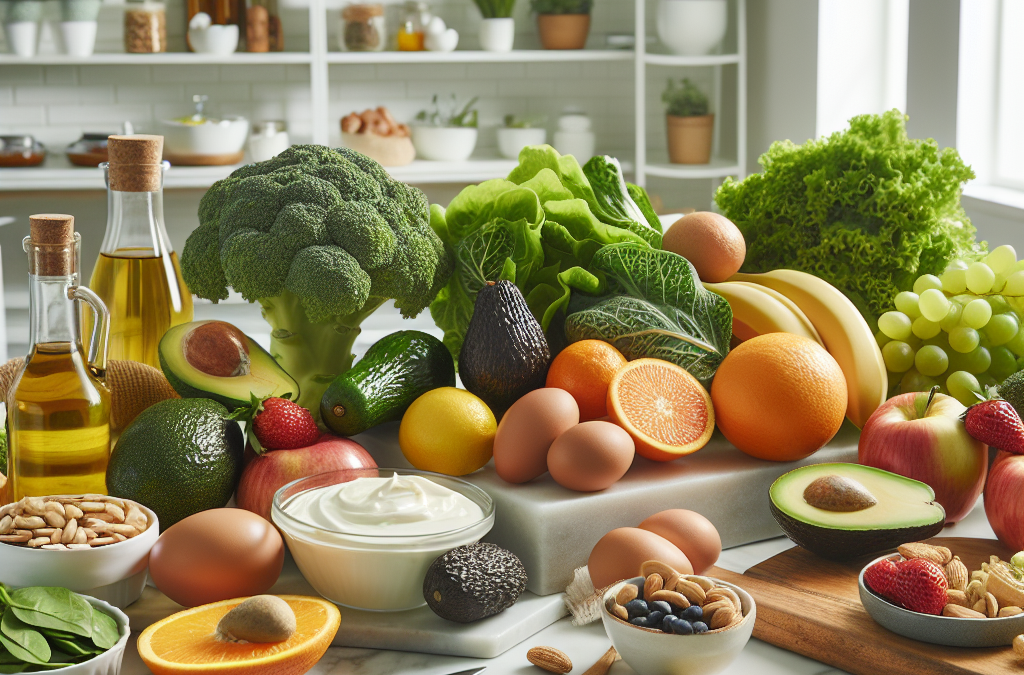The Power of Healthy Fats
Understanding Healthy Fats
Let’s chat about healthy fats because, believe me, they are super important for nutrient absorption! Fats help your body absorb fat-soluble vitamins A, D, E, and K. This means if you’re munching on a salad dressed with just vinegar, you might be missing out on a whole lot of goodness. Adding some olive oil or avocado can make a world of difference.
From my experience, incorporating foods like avocados, nuts, and seeds isn’t just tasty; it’s a brilliant way to ensure that your body gets the nutrients it craves. Plus, healthy fats keep you feeling full longer, which is a win for anyone trying to manage their appetite!
Not sure how to add healthy fats to your meals? Simple! Drizzle olive oil on your veggies, add some walnuts to your yogurt, or even snack on a handful of almonds. You’ll not only enjoy delicious meals but also maximize your nutrient absorption like a pro.
Vitamin C-Rich Foods
The Absorption Booster
Next up, let’s highlight Vitamin C. This vitamin isn’t just for fighting colds; it’s a real champion in helping your body absorb iron. If you’re eating plant-based iron from lentils or spinach, pairing those with Vitamin C sources like citrus fruits or bell peppers is like giving your meals a superhero sidekick!
Personally, I love making a fresh salsa with tomatoes, cilantro, and lime juice to top my bean dishes. It’s zingy, vibrant, and totally boosts the iron absorption from those beans. Trust me, your taste buds and your body will thank you.
It’s all about being a little intentional in your meal prep. Think about how you can combine different foods to make the most out of every bite. Add some strawberries to your spinach salad, and watch your nutrient absorption skyrocket!
Fermented Foods
The Gut Health Connection
Let’s dive into the world of fermented foods. These little gems are not just trendy; they actually help our guts thrive, which in turn improves nutrient absorption. Think yogurt, kefir, sauerkraut, and kimchi—these are packed with probiotics that aid digestion.
I started adding more fermented foods to my diet, and honestly, my digestion has never felt better! It’s fascinating how much our gut health affects the way we absorb nutrients. When your gut flora is healthy, it can better process and extract nutrients from the food you eat.
So, if you haven’t already, consider incorporating a serving of fermented foods into your daily routine. A small bowl of yogurt, a slice of sourdough bread, or a side of pickles can make a huge impact on your overall nutrient uptake. Plus, they’re incredibly delicious!
Whole Grains
Why Whole Grains Matter
If you’re not on the whole grain train yet, it’s time to hop on! Whole grains like quinoa, brown rice, and oats provide not just energy but essential nutrients and fiber. Fiber plays a huge role in digestion, which is key for nutrient absorption.
Get an Amazing Discount on the Best Certified Organic Whole Food Supplement!
I can’t tell you how many meals I’ve elevated simply by swapping white rice for quinoa. It’s not only more nutritious, but it also keeps me satisfied longer. Plus, those whole grains have B vitamins and antioxidants that complement other nutrient-rich foods perfectly.
Incorporating whole grains into your meals is a no-brainer. Start your day with oatmeal, enjoy a quinoa salad for lunch, or make a hearty brown rice stir-fry for dinner. Your body will reward you with better absorption, and you’ll feel pretty great too!
Variety in Your Rainbow Diet
Eat the Colors
Last but definitely not least, variety is key! Eating a colorful array of fruits and vegetables ensures you’re getting a range of vitamins and minerals. Different colors often translate to different nutrients, so mixing it up is a no-brainer for improved absorption!
From my own experience, I’ve found that a vibrant plate doesn’t just look appealing; it also means I’m more likely to consume a broader spectrum of nutrients. Try to include something red, something green, something yellow, and something purple in your meals. It’s fun, creative, and absolutely delicious!
One of my favorite ways to incorporate variety is by making stir-fries or grain bowls with whatever I have in the fridge. Toss in some colorful veggies, a protein source, and one of those healthy fats we talked about. Not only is it nutrient-packed, but it also keeps meals exciting!
FAQ
1. What are healthy fats and which foods are good sources?
Healthy fats include unsaturated fats found in foods like avocados, olive oil, nuts, and fatty fish. These fats are essential for absorbing nutrients and keeping you satisfied.
2. How does Vitamin C improve nutrient absorption?
Vitamin C enhances iron absorption, especially from plant sources. Pairing foods rich in iron with Vitamin C-rich options like citrus fruits can significantly boost absorption rates.
3. Why are fermented foods important for digestion?
Fermented foods contain probiotics that help maintain a healthy gut microbiome, improving digestion and enhancing nutrient absorption from food.
4. What are the benefits of eating whole grains?
Whole grains are nutrient-dense, loaded with fiber, vitamins, and minerals. They support better digestion and contribute to improved nutrient absorption.
5. How can I ensure I’m eating a variety of nutrients?
Incorporating a wide range of colorful fruits and vegetables in your meals is key. Aim to include different colors in every meal to ensure you’re getting a broad spectrum of nutrients.





